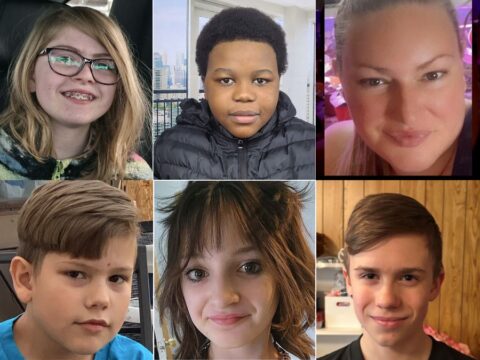This story was originally presented as part of a 6-Minute Memoir event on the theme of “Turning Point,” held last February on Zoom. Described as “speed storytelling for a cause,” the live events feature a dozen presenters sharing personal experiences in six minutes or less, with all proceeds going to charity.
A bit of context is needed to understand how much of a turning point finding my education in jail was for me. I’m a former street person, disconnected from my culture through adoption. I’m Métis-Cree from northern Saskatchewan. That disconnection led to some early experimentations with drugs, street life and eventually homelessness.
You may unsubscribe from any of our newsletters at any time.
I spent many years cycling in and out of homelessness and the justice system. By 2007, I’d had it. I was too much of a frequent flyer within our country’s institutions. I also used to fight a lot. My nose is kind of crooked; I have stab marks in my face. These are my war wounds, I guess they call them.
But one day in jail, I decided that I could hopefully change my life through education. I saw a guy who was minding his own business while he got his high school education. He seemed bulletproof to everything that was happening around him. I thought maybe I could get some of that and reteach myself how to read and write because I was functionally illiterate.
So this chapter of my book, From the Ashes, is called “Inception,” and it’s the turning point of my small life.
***
I saw a guy on our range at the sally port talking with an older man in a red-and-grey uniform. The geezer wasn’t stiff like the guards. He had a peaceful presence about him, but still a hardness about his body language, like he’d been one of us, like he’d done time in the past.
“Who is that?” I asked my cellmate.
“That’s the chaplain.”
I watched as the inmate gave the chaplain an envelope and took a pile of papers to the back table where he always sat.
When I walked over and asked him what he was doing, he said, “I’m getting my high school. You do that through the chaplain. It’s a great way to pass the time.”
I observed him for about a week. He was quiet — the mark of a true gent. He never bragged or talked bad or gambled chocolate bars or traded dope — the guy just did his time real classy like. I admired that. I thought maybe I could make a better life for myself in those books, too, like he was trying to do. Or maybe it was silly.
“I’d like to try that out,” I said to him one day after I’d finished working out with the water bags. “School. Give it another go.”
He lifted his head from his notes.
“But I can’t read too good. I dropped out a long time ago. And years of drugs and hard living — well, it’s kind of done my head in.”
“Nah. It’s easy — don’t believe those lies.” He turned around a piece of paper. “This is my reading assignment. Try reading the first line.”
My eyes had trouble focusing, I stumbled and stuttered, and I messed up pronouncing a few words, but I eventually got through it.
More on Broadview:
- My family cottage is on stolen land. What am I supposed to do?
- I’m a poet who has lived an accomplished life. Now I live in the shelter system.
- I turned to art to mourn my dad, the Anishinaabe man I never knew
“See. Walk in the park. I can help you out if you want.”
A week later, I received my first assignment from the chaplain in English. I got help with my reading from other inmates when I needed it and handed in my work the following week. A month later, I got an 85 percent on the final.
Something within me shifted.
Philosophy and world religions classes followed. I got 83 percent in philosophy. World religions was way harder — I didn’t finish because I didn’t understand all the big words. The local school board, however, recognized my efforts and gave me six maturity credits. Three months into my sentence and I was only two credits short of graduating high school — it was a miracle.
Unbeknownst to me, most of the guys on the range were suspicious. Rumours spread that I was flying kites to the screws, squawking, because cell raids always happened right after I’d handed in my homework or sent a letter to Grandma. After I submitted one of my last assignments, I was confronted in the washroom by a group of inmates.
“Why would you chirp on your brothers?” they asked and slammed me up against the shower wall.
“I’m just trying to finish my schooling,” I said, afraid but determined.
They roughed me up some, clocked me in the eye a few times, but eventually stopped, satisfied, I assume, by the fact that I didn’t break.
***
Bestselling author Jesse Thistle is a PhD candidate and assistant professor at York University, where he is researching the intergenerational and historic trauma of the Métis people.
Copyright © 2019 by Jesse Thistle. From From the Ashes: My Story of Being Métis, Homeless, and Finding My Way by Jesse Thistle. Reprinted by permission of Simon & Schuster Canada, a Division of Simon & Schuster, Inc.
A version of this piece first appeared in Broadview’s January/February 2022 issue with the title “Inception.”














